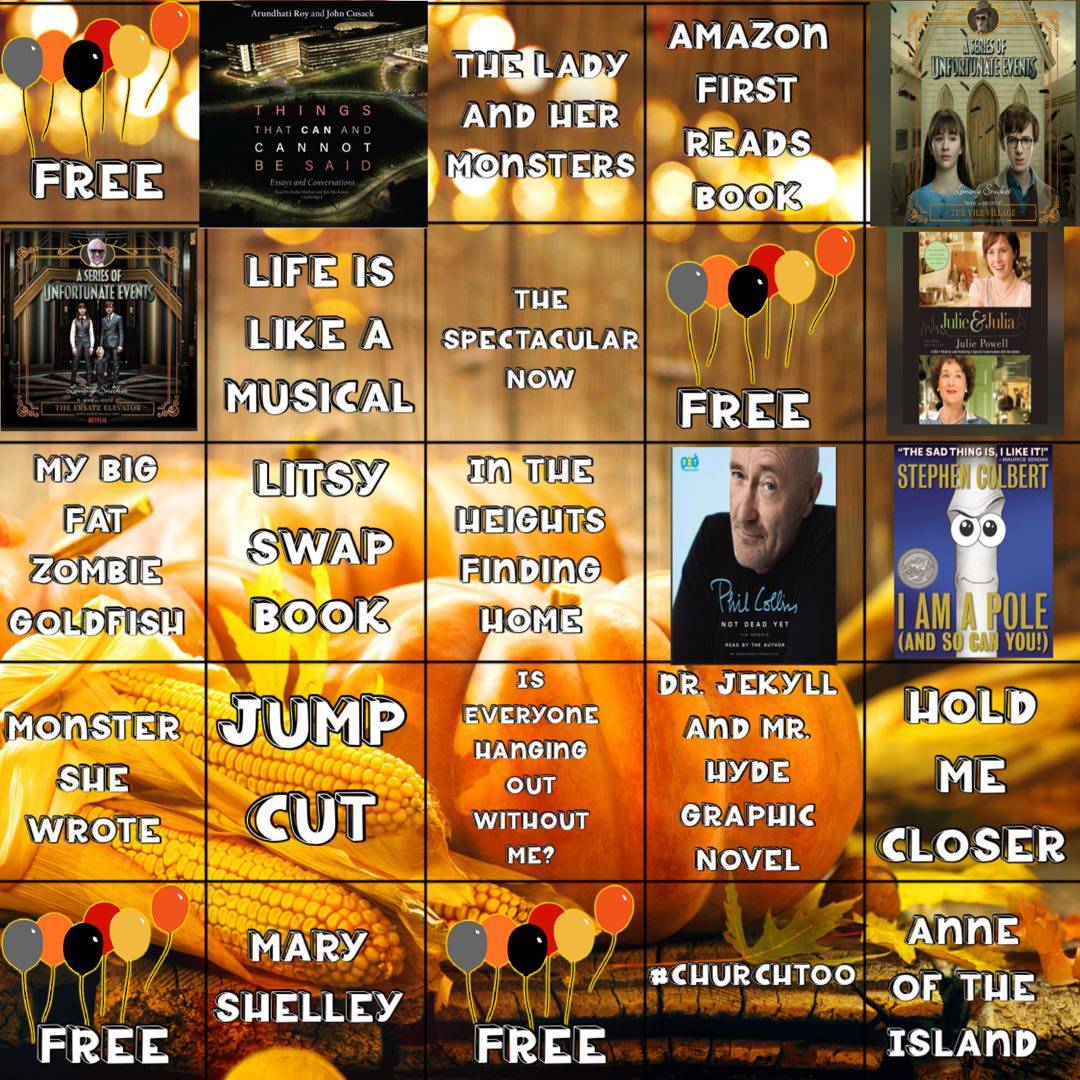
A quick read documenting a conversation about imperialism, mass surveillance, and war. Very interesting, but could have been longer in my opinion. #BookSpinBingo #SuperSeptember

A quick read documenting a conversation about imperialism, mass surveillance, and war. Very interesting, but could have been longer in my opinion. #BookSpinBingo #SuperSeptember
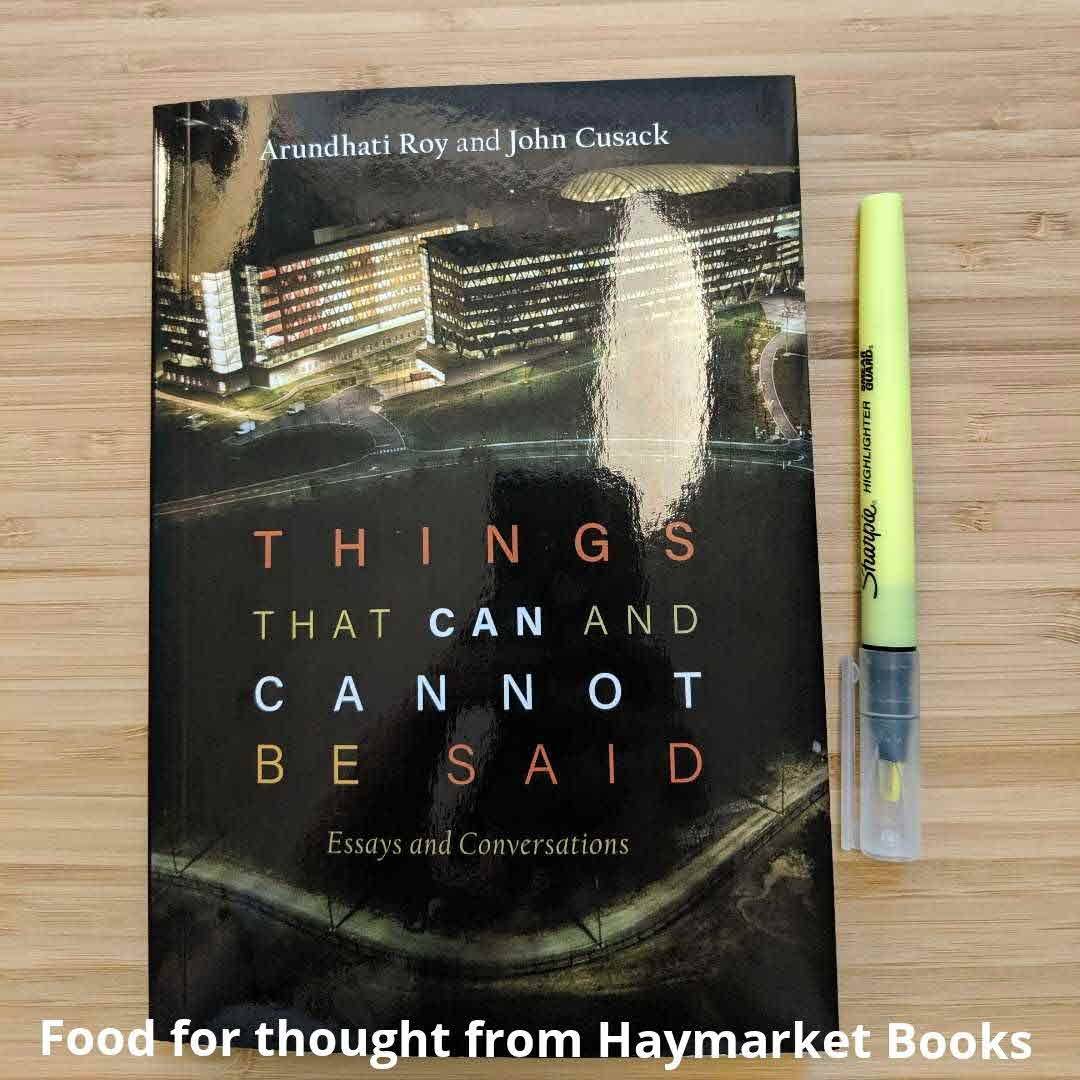
Roy: Nonviolence is radical political theater.
Cusack: Effective only when there's an audience.
Roy: Exactly. And who can pull in an audience? You need some capital, some stars, right? Gandhi was a superstar. The indigenous people in the forest don't have that capital, that drawing power. So they have no audience. Nonviolence should be a tactic - not an ideology preached from the sidelines to victims of massive violence.
#Haymarket
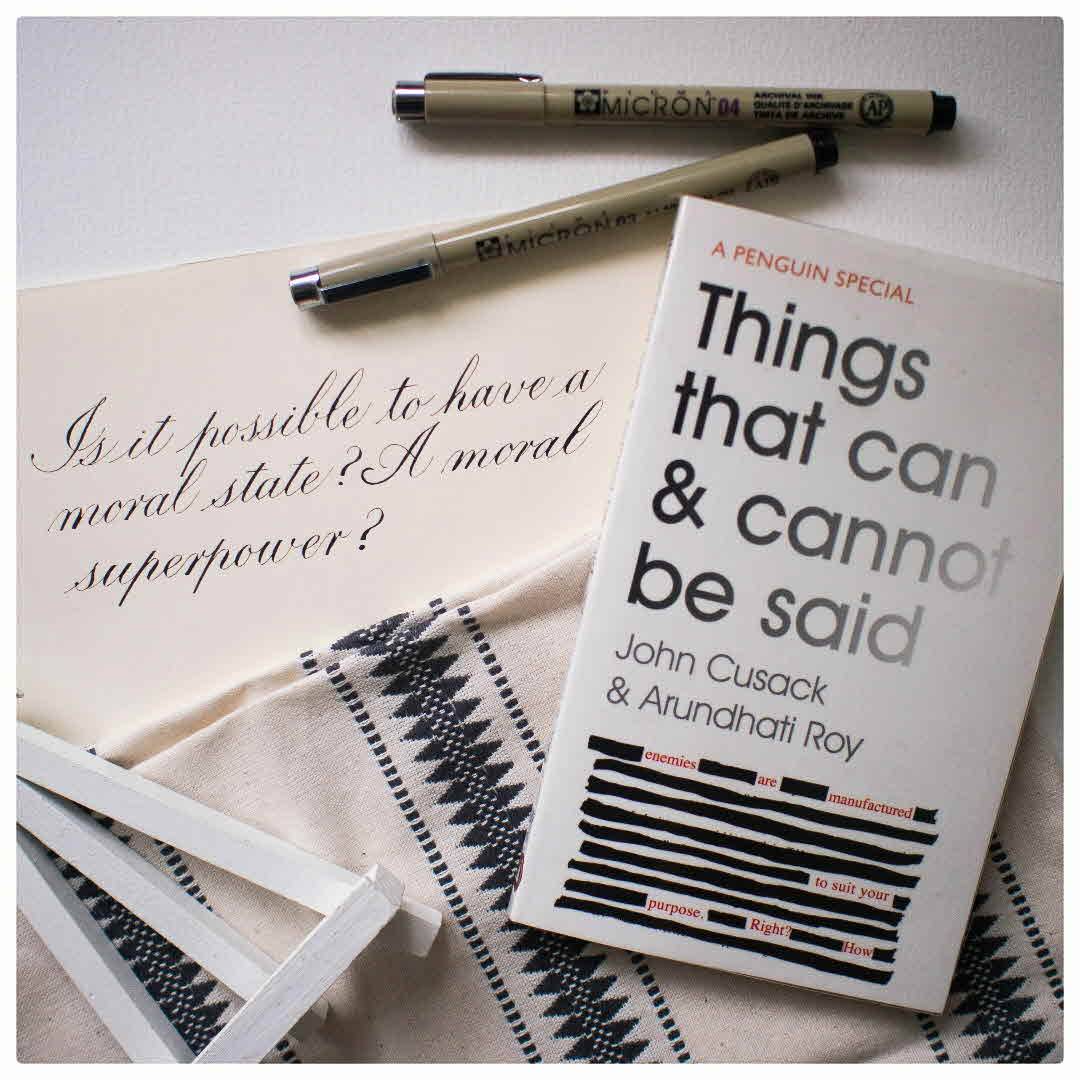
A short book which documents the conversation between Arundhati Roy (author, activist), Daniel Ellsboy (US military analyst who released the Pentagon Papers), Edward Snowden (CIA employee who released classified NSA documents) and John Cusack.
Roy drives the conversation here and brings up some interesting points about the role of the State and how they wield power. Some points could have been more developed upon.
This short, compact book was a reminder of why I love Arundhati Roy so much. She has a wealth of knowledge, experience, and the ability to look at issues from various layers of complexity and depth.
I'll be on the lookout for more of Cusack's writings as well.
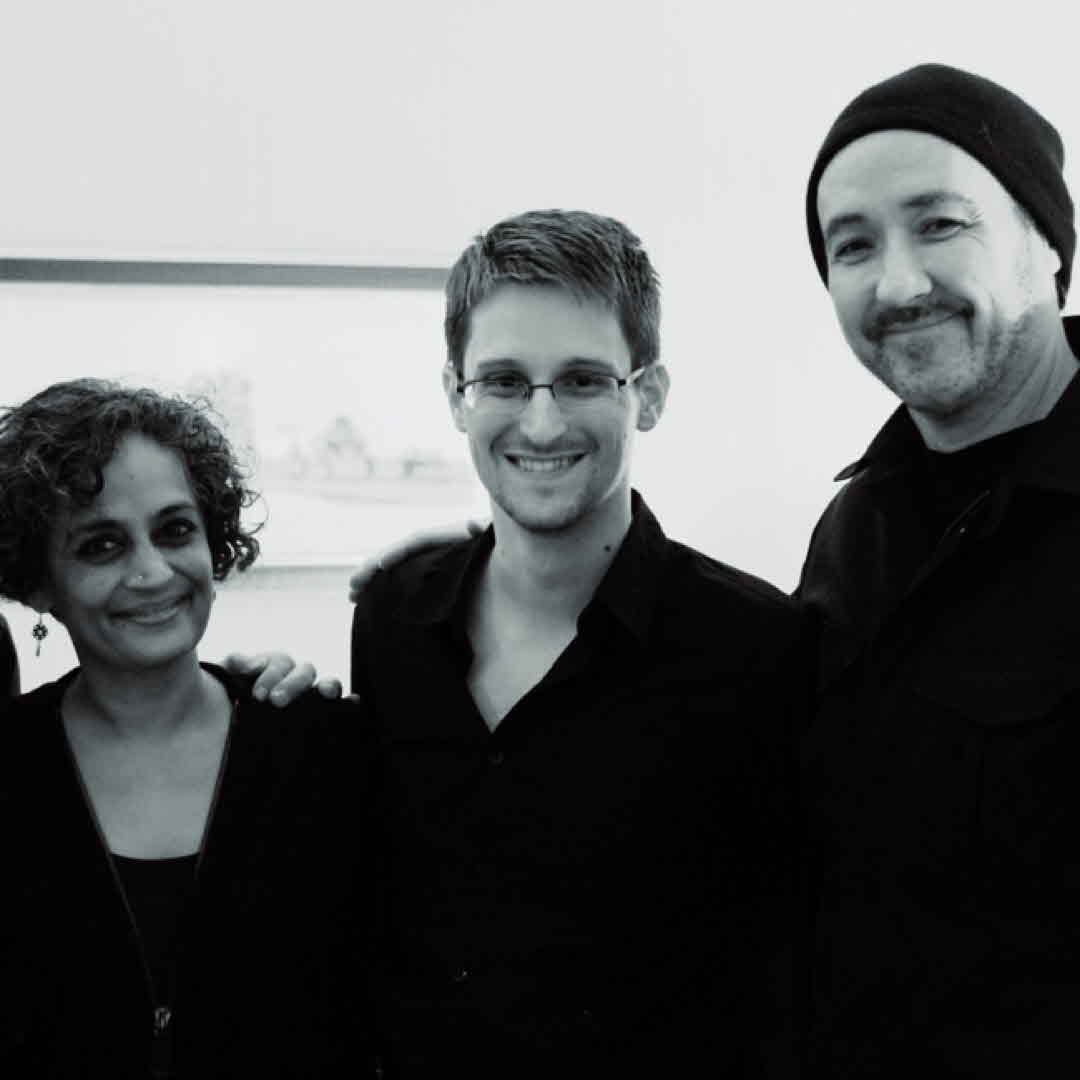
"One morning as I scanned the news–horror in the Middle East, Russia and America facing off in Ukraine–I thought of Edward Snowden and wondered how he was holding up in Moscow. I began to imagine a conversation between him and Daniel Ellsberg. And then, interestingly, in my imagination a third person made her way into the room–the writer Arundhati Roy. It occurred to me that trying to get the three of them together would be a fine thing to do."
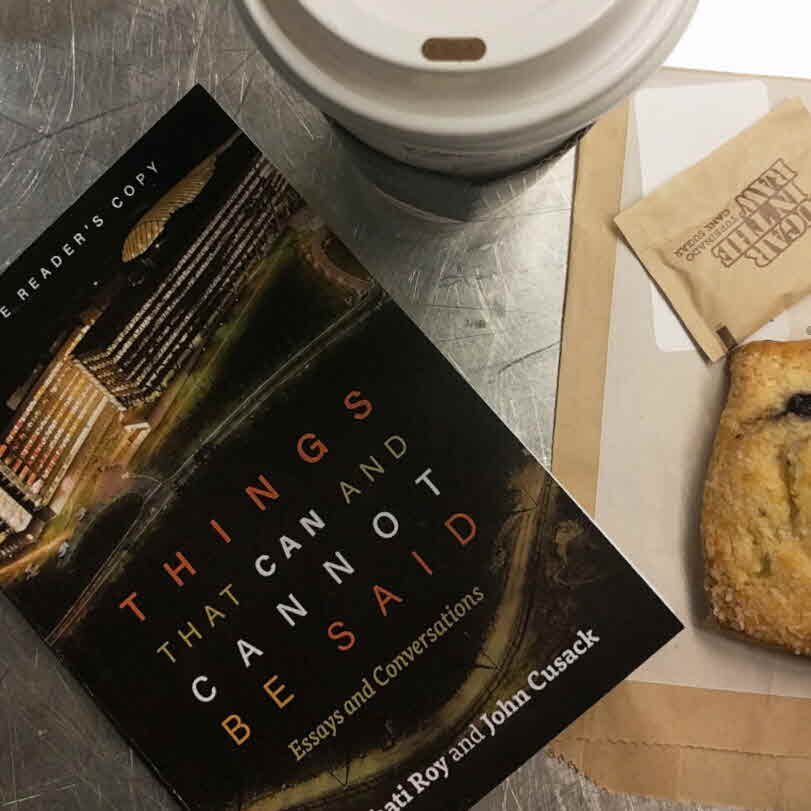
An interesting, complicated little book. Unapologetically radical. Essays by John Cusack (yes, the actor) and Arundhati Roy (God of Small Things) alternate to give context to their eventual conversation with Ed Snowden in Moscow, making the book as much about surveillance states, war, peace, and change overall as Snowden in particular. Full review to come in SA.